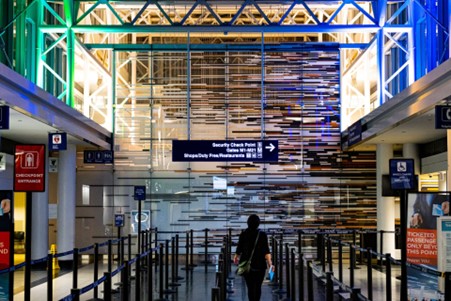Tips for Travelling with Pre-Existing Medical Conditions
Travelling is now more accessible for everyone, but travelling with a pre-existing medical condition can be challenging and frustrating if you’re underprepared. To help you get organised before your trip and to get you through airport security as quickly as possible, here are some top tips for travelling with pre-existing medical conditions.
Get Travel Insurance with Pre-existing Medical Conditions Cover
When travelling with a pre-existing medical condition, it’s important to have travel insurance. To purchase Oasis travel insurance with pre-existing medical conditions cover, you will need to declare any pre-existing medical conditions you have. You can choose from three levels of cover and with this add-on, your emergency medical costs and repatriation expenses will be covered. You will also be covered if you have to cancel or cut your trip short as a result of an illness or injury.
Get a Doctor’s Letter from Your GP
Before you depart on your tip, get a check-up from your GP to make sure you’re fit to fly. Your doctor can provide you with a detailed letter describing what your medical conditions are, what medications you take, what medical devices you use and what they do. Your GP may be able to provide you with advice and alleviate your concerns if you’re worried about how travelling will affect your health. To get a letter from you GP, you may have to pay a small fee.
Contact the Airline
You’ll need to contact the airline before your flight if you need any special accommodations to be made. For example, they can ensure that your medicine is stored in a cool place, if necessary. If you have a physical disability and use a wheelchair, the airline can provide you with assistance on the day of your flight. If you have any internally fitted medical devices (such as a hip replacement) or externally fitted medical devices (such as a pacemaker or insulin pump), you may be required to fill out a Medical Device Awareness Card in advance so that the airline has the full details of your medical condition(s). These medical conditions may entitle you to go through security without having to pass through the scanner. You should also ask them if they require any other important medical information, such as an ICD identification card.
Make Sure You Can Take Your Medication with You
Some countries have restrictions on what medications are allowed in the country and there are strict rules when it comes to controlled drugs. You should contact the British embassy of the country you’re vising to make sure you can take your medication into the country. You may need to fill out a declaration form and show your doctor’s letter and prescription at the border. Be mindful of how much medication you pack as some countries will only allow you to take a certain amount with you.
Put Your Medication in Your Carry-On Bag
Most airlines have rules about how much medicine you can bring on a flight (especially if it is liquid). Pack most of your medication in your suitcase but put enough medication and medical devices (such as syringes or EpiPens) for the flight in your hand luggage, plus enough a few extra days’ worth in case your baggage is delayed. You should keep your medication in its original packaging, and keep it with important medical information. Make sure you can easily access it as you may be asked to take it out and place it on a tray when you go through airport security.
Get a UK Global Health Insurance Card
You should apply for a UK Global Health Insurance Card (GHIC) on the NHS site if you don’t already have one. A GHIC is free and will entitle you to state-provided emergency healthcare in EU countries, although they aren’t valid in Norway, Iceland, and Liechtenstein. Along with your travel insurance, this will ensure that you can get appropriate care while you’re away.
Know Where the Nearest Hospitals Are
If your pre-existing medical condition is well managed, then you likely won’t need emergency care. You never know what could happen when you’re abroad, so you should make sure you know what the emergency numbers are for the country you’re visiting and where you can get a prescription for your medication if your baggage goes missing or if your medicine is lost or stolen. You should also know where the nearest hospitals are, just in case you need treatment.
Book Appropriate Accommodation
Before booking accommodation, you should research the hotel you want to stay in. Give them a call and ask what reasonable adjustments they can make to accommodate your needs. If you use a wheelchair, the doorways should be wide enough and there should be ramps and lifts so you can get to your room. The bathroom and bedroom should be large enough to fit your chair. If you use a CPAP machine or something that needs to be plugged in, then there should be plenty of sockets. If you’re eating there, ensure that they can accommodate your dietary requirements.
Before planning your trip, you should always consult the FCDO travel advice for any advice for travelling abroad with a pre-existing medical condition or disability. This will help your travels go more smoothly so you can enjoy it.

